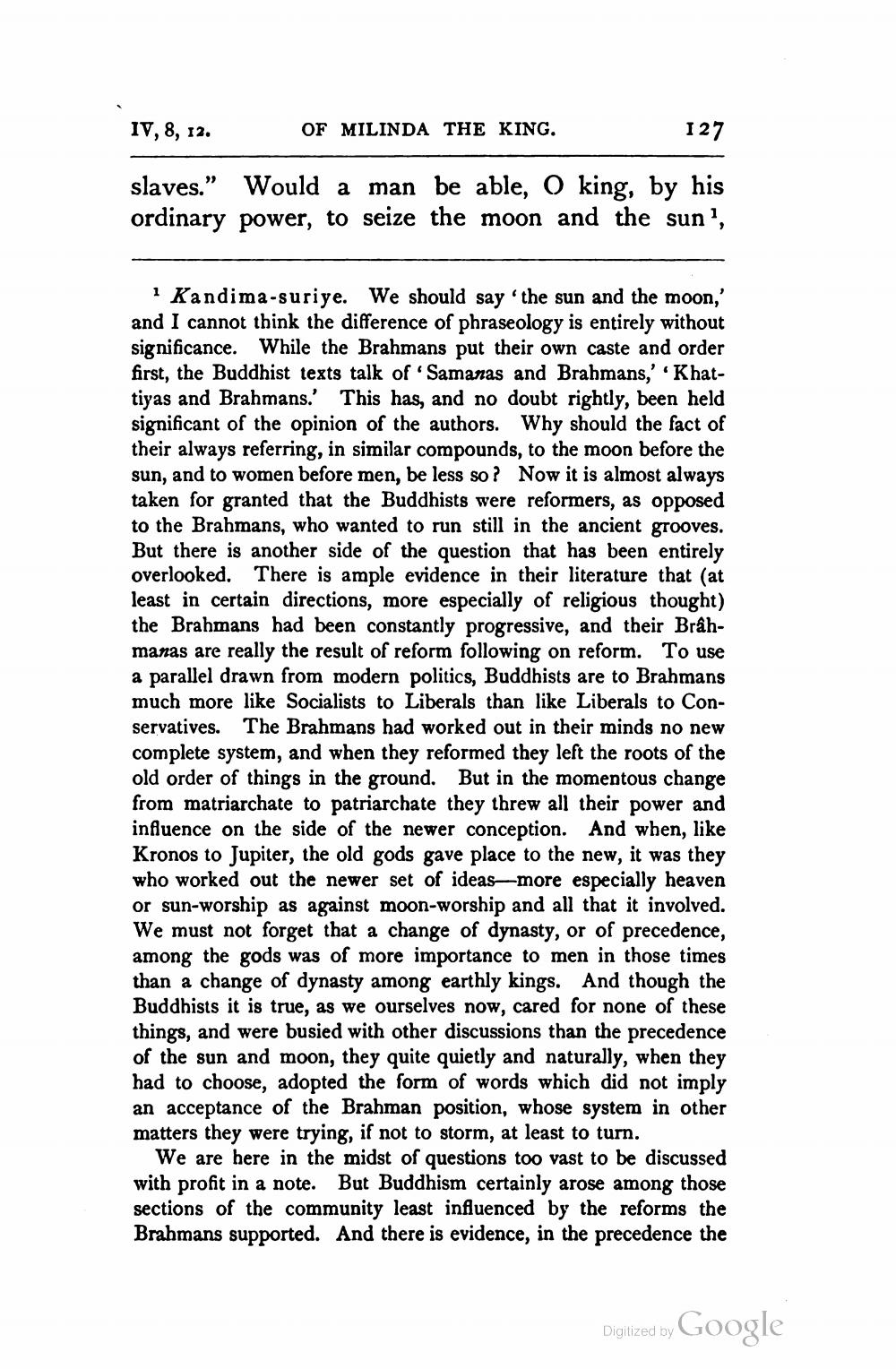________________
IV, 8, 12.
OF MILINDA THE KING.
127
slaves." Would a man be able, ( king, by his ordinary power, to seize the moon and the sun',
1 Kandima-suriye. We should say the sun and the moon,' and I cannot think the difference of phraseology is entirely without significance. While the Brahmans put their own caste and order first, the Buddhist texts talk of Samanas and Brahmans,' .Khattiyas and Brahmans. This has, and no doubt rightly, been held significant of the opinion of the authors. Why should the fact of their always referring, in similar compounds, to the moon before the sun, and to women before men, be less so? Now it is almost always taken for granted that the Buddhists were reformers, as opposed to the Brahmans, who wanted to run still in the ancient grooves. But there is another side of the question that has been entirely overlooked. There is ample evidence in their literature that at least in certain directions, more especially of religious thought) the Brahmans had been constantly progressive, and their Brahmanas are really the result of reform following on reform. To use a parallel drawn from modern politics, Buddhists are to Brahmans much more like Socialists to Liberals than like Liberals to Conservatives. The Brahmans had worked out in their minds no new complete system, and when they reformed they left the roots of the old order of things in the ground. But in the momentous change from matriarchate to patriarchate they threw all their power and influence on the side of the newer conception. And when, like Kronos to Jupiter, the old gods gave place to the new, it was they who worked out the newer set of ideas—more especially heaven or sun-worship as against moon-worship and all that it involved. We must not forget that a change of dynasty, or of precedence, among the gods was of more importance to men in those times than a change of dynasty among earthly kings. And though the Buddhists it is true, as we ourselves now, cared for none of these things, and were busied with other discussions than the precedence of the sun and moon, they quite quietly and naturally, when they had to choose, adopted the form of words which did not imply an acceptance of the Brahman position, whose system in other matters they were trying, if not to storm, at least to turn.
We are here in the midst of questions too vast to be discussed with profit in a note. But Buddhism certainly arose among those sections of the community least influenced by the reforms the Brahmans supported. And there is evidence, in the precedence the
Digitized by Google




